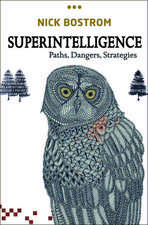Catastrophe Modeling: A New Approach to Managing Risk
Editat de Patricia Grossi, Howard Kunreutheren Limba Engleză Paperback – 7 feb 2005
Using data from three model cities (Oakland, CA, Long Beach, CA and Miami/Dade County, FLA), experts from the Wharton School of the University of Pennsylvania examine the role of catastrophe modeling to develop risk management strategies for reducing and spreading the losses from future disasters. Given the uncertainties associated with terrorism the book points out the opportunities for utilizing catastrophe models to set insurance rates and to examine public-private partnerships for providing financial assistance in the event of a terrorist attack.
"This book fills a critical need in setting forth the role of modern risk analysis in managing catastrophe risk. There is no comparable reference work for this important subject area. The book is well written and well organized. It contains contributions from many of the most distinguished experts in the fields of risk analysis and risk management. It strikes a good balance between the technical aspects of the subject and the practical aspects of decision making."
"This book is strongly recommended for individuals who must make decisions regarding the management of impacts of catastrophe risks including those in both the public and private sector."
Wilfred D. Iwan
Professor of Applied Mechanics, Emeritus
Director, Earthquake Engineering Research Laboratory
California Institute of Technology
"The authors have captured the essence of catastrophe modeling: its value, its utility and its limitations. Every practitioner in the catastrophe risk field should read this book."
Franklin W. Nutter, President
Reinsurance Association of America
| Toate formatele și edițiile | Preț | Express |
|---|---|---|
| Paperback (1) | 1373.67 lei 6-8 săpt. | |
| Springer Us – 7 feb 2005 | 1373.67 lei 6-8 săpt. | |
| Hardback (1) | 1385.67 lei 6-8 săpt. | |
| Springer Us – 17 dec 2004 | 1385.67 lei 6-8 săpt. |
Preț: 1373.67 lei
Preț vechi: 1675.21 lei
-18% Nou
Puncte Express: 2061
Preț estimativ în valută:
262.89€ • 273.44$ • 217.03£
262.89€ • 273.44$ • 217.03£
Carte tipărită la comandă
Livrare economică 14-28 aprilie
Preluare comenzi: 021 569.72.76
Specificații
ISBN-13: 9780387241050
ISBN-10: 0387241051
Pagini: 252
Ilustrații: XX, 252 p. 69 illus., 4 illus. in color.
Dimensiuni: 155 x 235 x 15 mm
Greutate: 0.39 kg
Ediția:2005
Editura: Springer Us
Colecția Springer
Locul publicării:New York, NY, United States
ISBN-10: 0387241051
Pagini: 252
Ilustrații: XX, 252 p. 69 illus., 4 illus. in color.
Dimensiuni: 155 x 235 x 15 mm
Greutate: 0.39 kg
Ediția:2005
Editura: Springer Us
Colecția Springer
Locul publicării:New York, NY, United States
Public țintă
ResearchCuprins
Introduction: Needs, Stakeholders, and Government Initiatives.- An Introduction to Catastrophe Models and Insurance.- The Risk Assessment Process: The Role of Catastrophe Modeling in Dealing with Natural Hazards.- Sources, Nature, and Impact of Uncertainties on Catastrophe Modeling.- Use of Catastrophe Models in Insurance Rate Making au]Dennis^Kuzak.- Insurance Portfolio Management.- Risk Financing.- The Impact of Mitigation on Homeowners and Insurers: An Analysis of Model Cities.- The Impact of Risk Transfer Instruments: An Analysis of Model Cities.- Extending Catastrophe Modeling To Terrorism.
Textul de pe ultima copertă
Catastrophe Modeling: A New Approach to Managing Risk is the first book that systematically analyzes how catastrophe models can be used for assessing and managing risks of extreme events. It focuses on natural disaster risk, but also discusses the management of terrorism risk. A unique feature of this book is the involvement of three leading catastrophe modeling firms, AIR Worldwide, EQECAT, and Risk Management Solutions, who examine the role of catastrophe modeling in rate setting, portfolio management and risk financing.
Using data from three model cities (Oakland, CA, Long Beach, CA and Miami/Dade County, FLA), experts from the Wharton School of the University of Pennsylvania examine the role of catastrophe modeling to develop risk management strategies for reducing and spreading the losses from future disasters. Given the uncertainties associated with terrorism the book points out the opportunities for utilizing catastrophe models to set insurance rates and to examine public-private partnerships for providing financial assistance in the event of a terrorist attack.
"This book fills a critical need in setting forth the role of modern risk analysis in managing catastrophe risk. There is no comparable reference work for this important subject area. The book is well written and well organized. It contains contributions from many of the most distinguished experts in the fields of risk analysis and risk management. It strikes a good balance between the technical aspects of the subject and the practical aspects of decision making."
"This book is strongly recommended for individuals who must make decisions regarding the management of impacts of catastrophe risks including those in both the public and private sector."
Wilfred D. Iwan
Professor of Applied Mechanics, Emeritus
Director, Earthquake Engineering Research Laboratory
California Institute of Technology
"The authors have captured the essence of catastrophe modeling: its value, its utility and its limitations. Every practitioner in the catastrophe risk field should read this book."
Franklin W. Nutter, President
Reinsurance Association of America
Using data from three model cities (Oakland, CA, Long Beach, CA and Miami/Dade County, FLA), experts from the Wharton School of the University of Pennsylvania examine the role of catastrophe modeling to develop risk management strategies for reducing and spreading the losses from future disasters. Given the uncertainties associated with terrorism the book points out the opportunities for utilizing catastrophe models to set insurance rates and to examine public-private partnerships for providing financial assistance in the event of a terrorist attack.
"This book fills a critical need in setting forth the role of modern risk analysis in managing catastrophe risk. There is no comparable reference work for this important subject area. The book is well written and well organized. It contains contributions from many of the most distinguished experts in the fields of risk analysis and risk management. It strikes a good balance between the technical aspects of the subject and the practical aspects of decision making."
"This book is strongly recommended for individuals who must make decisions regarding the management of impacts of catastrophe risks including those in both the public and private sector."
Wilfred D. Iwan
Professor of Applied Mechanics, Emeritus
Director, Earthquake Engineering Research Laboratory
California Institute of Technology
"The authors have captured the essence of catastrophe modeling: its value, its utility and its limitations. Every practitioner in the catastrophe risk field should read this book."
Franklin W. Nutter, President
Reinsurance Association of America
Caracteristici
Based on the research that has been conducted at Wharton over the past five years on catastrophic risk Brings together the joint effort with the three leading modeling firms [Applied Insurance Research Worldwide (AIR), EQECAT, and Risk Management Solutions (RMS)] and Wharton taking a lead on writing specific chapters, but with the other groups providing feedback and input Includes supplementary material: sn.pub/extras








